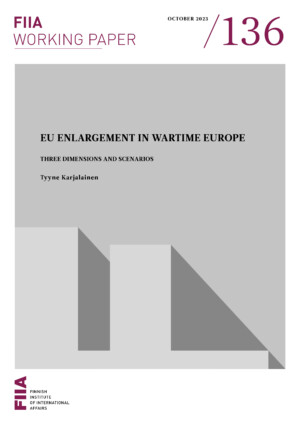The enlargement policy of the European Union from 2013 to 2022 was not only ineffective, but also lacked an active enlargement drive. Russia’s full-scale invasion of Ukraine changed the equation of costs and benefits in favour of new members and gave the EU a geopolitical incentive to restart enlargement. Enlargement is not only a geopolitical strategy, however: it also requires successful state-building efforts in the neighbourhood. Moreover, it is closely interlinked with the EU’s internal development.
This Working Paper analyzes the current evolution of the EU enlargement policy as it emerges from the interplay of geopolitics, state-building challenges, and the EU’s internal dynamics. Drawing on original interviews with state officials, the paper also presents three scenarios for the coming decade.
The paper concludes that to achieve its foreign policy objectives in the neighbourhood, the EU cannot continue “business as usual” with enlargement. On the contrary, the policy of 2013–2022 needs to be replaced by a more effective model that encourages candidate countries to undertake genuine efforts towards democratic development. At the same time, reforms and compromises are required at the EU’s end, including a solution to the dilemma between deepening and widening. Finally, the EU also needs to better address the security needs of the applicant countries already during the accession process.


